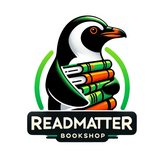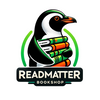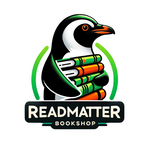Fleishman is In Trouble: Part 2
In the first part of my review, I offered a synopsis of Taffy Brodesser-Akner's "Fleishman Is in Trouble," emphasizing its rich tapestry of psychological insights and the nuanced portrayal of marriage, identity, and societal expectations. The novel serves as a reflective lens for the modern marriage, provoking readers to consider the complexities of their own relationships and the often unspoken psychological undercurrents that flow beneath.
For the second part of my review, I would like to turn towards the questions that "Fleishman Is in Trouble" leaves echoing in the minds of its readers, particularly as they pertain to the fabric of our own marital bonds:
- What is the psychological impact of divorce on individuals?
- How do people reconstruct their identity after the end of a marriage?
- What are the stages of grief that manifest following a divorce?
- How does the modern dating landscape affect self-perception and relationships?
- What are the psychological effects of app-based dating on individuals seeking new relationships after long-term commitments?
- How does the commodification of dating affect expectations and experiences of intimacy?
- What role does societal expectation play in the success or failure of a marriage?
- How do societal pressures regarding career, parenting, and success contribute to marital strain?
- In what ways do internalized societal roles influence personal happiness and fulfillment within a relationship?
- How are gender roles and expectations navigated and challenged in contemporary marriages?
- What does the novel suggest about the changing nature of masculinity and femininity?
- How do traditional gender roles contribute to the conflicts experienced by Toby and Rachel?
- What does the book imply about the nature of accountability in relationships?
- How do the characters take responsibility for their part in the relationship's dynamics?
- What does the novel say about blame and understanding in the context of a marriage and its dissolution?
- Is it possible to truly know our partners, or do we always view them through the lens of our own needs and desires?
- How do the characters’ perceptions of each other reveal their own psychological projections and biases?
- What does the book suggest about the limits of understanding between individuals?
- How do children factor into the psychological dynamics of a failing marriage?
- What is the impact on children when the family unit breaks down?
- How do parents' issues and their psychological states during and after a divorce affect their children?
- What does the book reveal about the pursuit of personal fulfillment versus the commitment to others?
- Can individual desires and needs for growth and fulfillment coexist with the demands and compromises of a relationship?
- How does the book portray the tension between self-actualization and familial or societal responsibilities?
These questions are not merely rhetorical; they cut to the core of the psychological work I engage in as a psychologist. "Fleishman Is in Trouble" does not provide clear-cut answers, but rather, it opens up a space for dialogue—a space where we can reflect upon the intricacies of our own relationships. It invites us to ponder the depth of our connections, the expectations we bring to our partnerships, and the personal transformations we undergo within the lifecycle of a marriage.
The novel stands as a testament to the enduring quest for self-understanding and the courage to face the psychological reflections we encounter in the mirror of our closest relationships. Through Toby and Rachel's story, we're inspired to ask ourselves how we might navigate our own marriages with greater awareness, empathy, and psychological insight.










